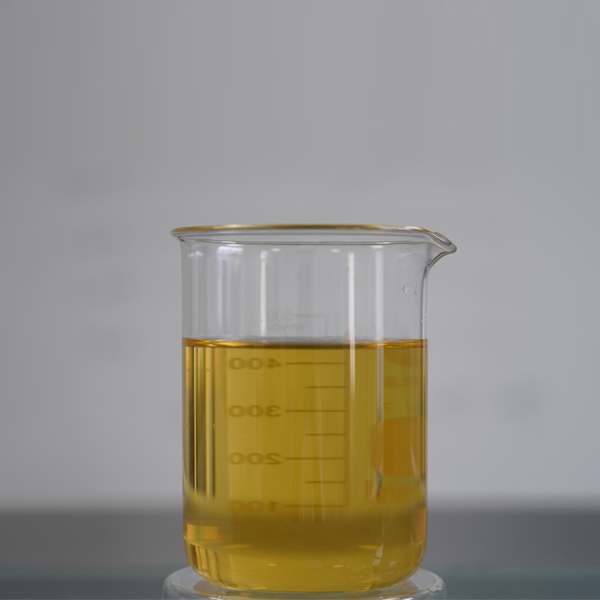
News
Nov . 27, 2024 00:05 Back to list
Effective Micronutrient Liquid Fertilizers for Enhanced Plant Growth and Health
Micronutrient Liquid Fertilizer Enhancing Plant Growth and Soil Fertility
In the world of agriculture, the health of the soil and the plants that grow in it is paramount. While macronutrients like nitrogen, phosphorus, and potassium are essential for plant growth, micronutrients play a critical role in enhancing the overall health of crops. Micronutrient liquid fertilizers are becoming increasingly popular among farmers and gardeners alike, offering an efficient solution for addressing nutrient deficiencies in the soil and promoting optimal plant growth.
Understanding Micronutrients
Micronutrients are trace elements that, although required in smaller amounts than macronutrients, are vital for plant development. These include iron, manganese, zinc, copper, boron, molybdenum, and chlorine. Each micronutrient has a specific function within the plant's physiology. For instance, iron is crucial for the synthesis of chlorophyll, which enables plants to efficiently perform photosynthesis. Zinc is essential for enzyme functions and the production of growth hormones, while boron plays a key role in cell wall formation and reproductive processes.
A deficiency in any of these micronutrients can lead to various growth issues, including stunted growth, poor flowering, and increased susceptibility to diseases. Therefore, ensuring that plants receive adequate levels of micronutrients is essential for maximizing yield and improving the overall quality of the crops.
Advantages of Liquid Micronutrient Fertilizers
Liquid micronutrient fertilizers are a popular choice due to their ease of application and rapid absorption by plants. Unlike solid fertilizers, which may take time to break down and be utilized by the plant, liquid fertilizers provide a more immediate and efficient source of nutrients. This is particularly beneficial in situations where plants exhibit symptoms of nutrient deficiencies.
One of the main advantages of liquid micronutrient fertilizers is their ability to be mixed with water, allowing for foliar application. This method enables the nutrients to be directly absorbed through the leaves, providing a quick remedy for deficiencies. Additionally, these fertilizers can be easily integrated into irrigation systems, ensuring that the nutrients reach the root zone effectively.
micronutrient liquid fertilizer

Another significant benefit of liquid micronutrient fertilizers is their versatility. They can be used in a wide variety of agricultural practices, from small-scale gardening to large-scale farming operations. Liquid formulations are also often combined with other nutrients, allowing farmers to customize their fertilization plans to meet specific crop needs.
Environmental Considerations
As with any agricultural input, it is essential to consider the environmental impact of micronutrient liquid fertilizers. When used responsibly, these fertilizers can help improve soil health and reduce the need for excessive chemical applications by providing targeted nutrient solutions. Moreover, by enhancing plant vigor, these fertilizers can contribute to increased crop resilience against pests and diseases, potentially leading to a reduction in pesticide use.
However, it is crucial to follow recommended application rates to prevent nutrient runoff, which can lead to water quality issues. Farmers and gardeners should conduct soil tests to determine existing nutrient levels and needs, ensuring that they only apply the necessary amounts of micronutrient fertilizers.
The Future of Micronutrient Liquid Fertilizers
As global populations continue to rise and demand for food increases, the importance of efficient and effective fertilization practices cannot be overstated. Micronutrient liquid fertilizers represent a valuable tool in sustainable agriculture, helping to ensure that crops have access to the nutrients they need for robust growth.
Innovation in fertilizer formulation and delivery systems is expected to continue, with ongoing research exploring new micronutrient blends and their effects on various crops. The integration of technology, such as precision agriculture, will also allow for more accurate applications, making it possible to tailor nutrient delivery to the specific needs of individual plants and soil conditions.
In conclusion, micronutrient liquid fertilizers are an indispensable part of modern agricultural practices. They offer a practical solution for addressing nutrient deficiencies, improving plant health, and enhancing overall soil fertility. As farmers and gardeners embrace these advancements, they can look forward to healthier crops, improved yields, and a more sustainable approach to agriculture. With careful management and responsible use, the future of micronutrient liquid fertilizers is bright, promising a healthier planet and a more secure food supply for generations to come.
-
Polyaspartic Acid Salts in Agricultural Fertilizers: A Sustainable Solution
NewsJul.21,2025
-
OEM Chelating Agent Preservative Supplier & Manufacturer High-Quality Customized Solutions
NewsJul.08,2025
-
OEM Potassium Chelating Agent Manufacturer - Custom Potassium Oxalate & Citrate Solutions
NewsJul.08,2025
-
OEM Pentasodium DTPA Chelating Agent Supplier & Manufacturer High Purity & Cost-Effective Solutions
NewsJul.08,2025
-
High-Efficiency Chelated Trace Elements Fertilizer Bulk Supplier & Manufacturer Quotes
NewsJul.07,2025
-
High Quality K Formation for a Chelating Agent – Reliable Manufacturer & Supplier
NewsJul.07,2025
